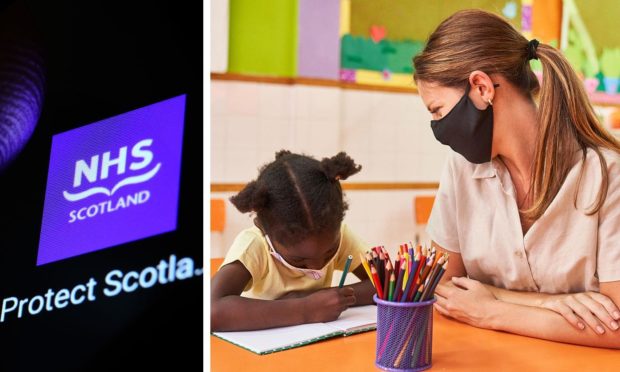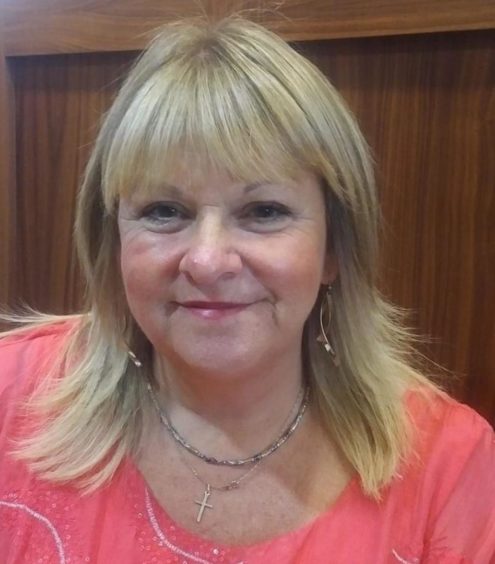Calls have been made for nursery staff to be treated as key workers so they can avoid the “pingdemic” causing chaos across the country.
The head of the Scottish Private Nursery Association (SPNA) says it is “deeply concerning” that crucial childcare staff are not on the list.
SPNA CEO Sharon Fairley says nurseries are vital to make sure key workers from medics to truck drivers can keep the country moving without worrying about childcare.
40% of children in the north and north east who are in nursery care are registered with private nurseries. Their role is even more important at the moment with most school nurseries closed for the holidays.
Now, the SPNA is calling for exemptions for nursery workers so that they don’t have to self-isolate if they are “pinged” with a close contact alert.
If you need key workers to go to work, then you need people to care for their children.”
-Amanda Wallace Davidson, director of Donview Nursery in Aberdeen
The ping refers to a notification from the NHS Test and Protect apps that let users know they have come in contact with a positive case.
NHS advises people who have a close contact to self-isolate and take a test.
But increased self-isolations is putting stress on work forces around Scotland.
And despite First Minister Nicola Sturgeon’s recent announcement that “essential staff” can remain at work – under strict conditions – if they have a close contact, not everyone qualifies for the exemption.
“We’ve had to fight in the past”
Amanda Wallace Davidson, director of Donview Nursery in Aberdeen, said that her and her staff and the children in her care have recently felt the impact of self-isolation requirements.
“We are still able to open but due to the way that the track and trace works, most of my staff and most of the children were told to isolate. Even when the staff member went for a second test that came back negative, they wouldn’t accept the second one. They would only accept the first positive.
“Most of the children from our nursery have not been allowed to come to nursery.”
That’s in addition to two-thirds of her staff, including her manager. Ms Davidson said that she has been kept so busy, it’s hard to keep on top of the most recent government guidance.
But she said nurseries have been fighting a long battle for key worker classification. Making private nurseries exempt from isolation could help other key service providers, she said.
“We’ve had to fight in the past to be classed as key workers. Right from the very start. If you need key workers to go to work, then you need people to care for their children.”
Why make nursery workers key staff?
Ms Fairley described the situation facing nurseries around Scotland as “deeply concerning.” She added that nurseries help make the other, more visible, essential services tick.
“The reality is that many of our frontline workers – our NHS doctors and nurses, our ambulance drivers, police, firemen and women, even our supermarket truck drivers – rely on being able to place their children in nursery in order to attend their own job.
“Nurseries have to maintain set staff-to-child ratios, a requirement which is already being made harder by the expectations of safe distancing at work because of COVID-19. Many of the safe work requirements – such as staff maintaining social distancing from each other – are understandably difficult to achieve within a nursery setting.
“Maintaining standards could be just impossible if we get hit by the pingdemic. That could see nurseries having to close, meaning our frontline workers are potentially absent from their own critical work.”
What are the numbers?
Private nurseries are one of the nursery options available in north and north east council areas. Parents and guardians can also access services provided by non-profits and local authorities.
The most recent statistics from the Care Inspectorate’s 2019 reports break down the proportion of nursery children who are cared for in private nurseries across the north and north east.
If nursery workers aren’t key staff, who is?
Last week, the Scottish Government announced new policies surrounding self-isolation for key workers. Any eligible workers who want to take advantage of the exemption must have received their second dose of vaccine at least two weeks prior. They will also have to have a negative PCR test and agree to daily lateral flow tests.
In order to apply for an exemption, businesses must prove they are critical to national infrastructure. This includes the following sectors:
- chemicals
- civil nuclear
- communications
- defence
- emergency services
- energy
- finance
- food
- government
- health
- space
- transport
- water
The government guidance states that health, social care and local services will have a different process. This will be communicated separately.
Scottish government: update next week
A Scottish Government spokesperson said that the changes to self-isolation rules are limited and on a case-by-case basis. Easing pressure on lifeline services should not come at the expense of public health, the spokesperson said.
“We are continuing to actively review the latest scientific evidence and expert clinical advice alongside the current state of the pandemic, and will use this to inform any decisions, working closely with trade unions and professional organisations when considering next steps.
“The First Minister will provide an update to Parliament on any changes to current self-isolation rules on Tuesday 3 August.”

